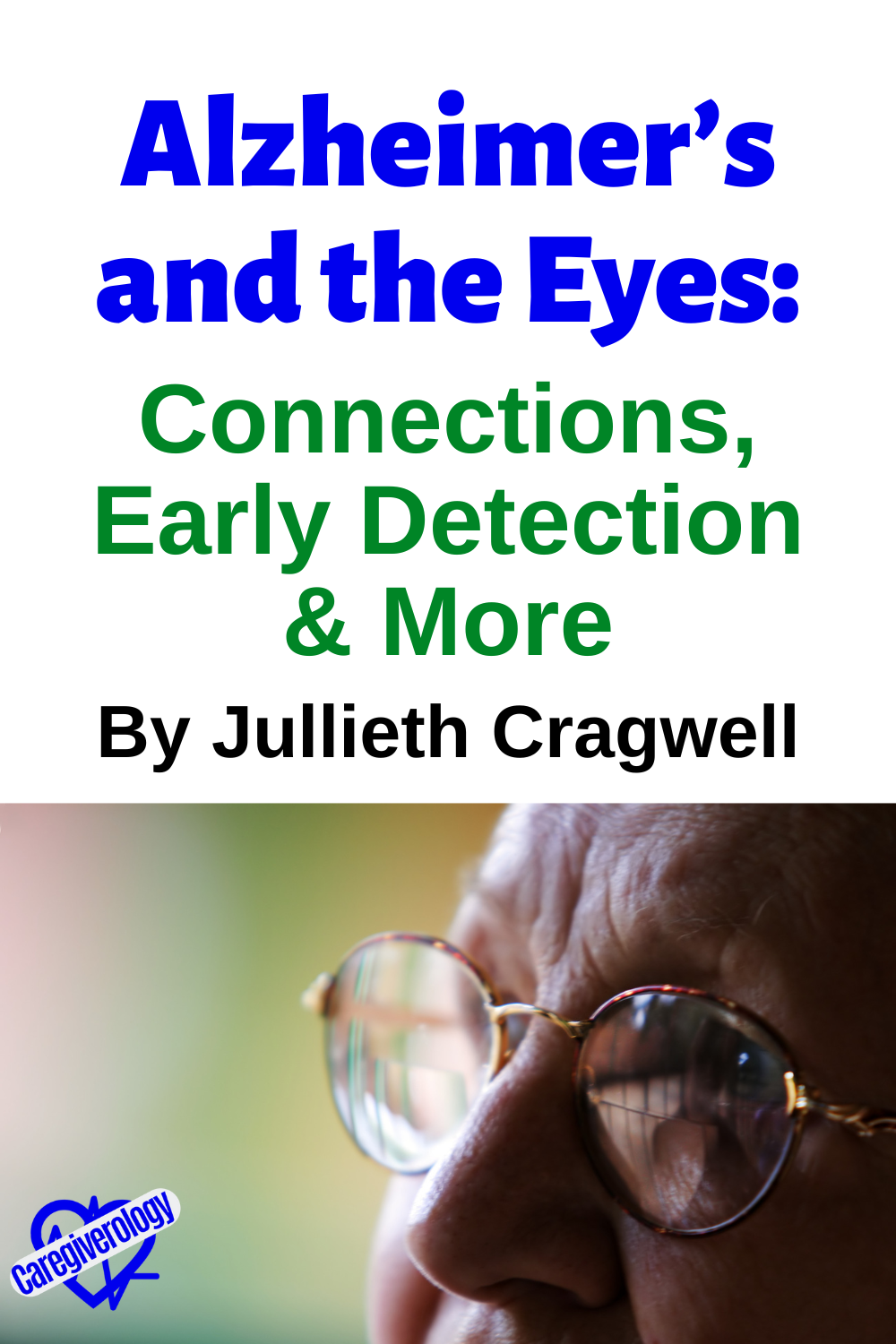Alzheimer’s and the Eyes: Connections, Early Detection and More
As we age, our bodies change in many ways. Unfortunately, one of those changes is an increased risk for Alzheimer’s disease. While there is no sure way to prevent Alzheimer’s, new research suggests that our eyes may be able to give us an early warning sign.
Connection What Challenging Activities
The Connection
Alzheimer’s disease is a degenerative brain disorder that leads to memory loss and cognitive decline. The disease also affects the parts of the brain that controls vision. As it progresses, people with Alzheimer’s may have trouble recognizing faces, reading, judging distances, and experiencing changes in color perception and light sensitivity. That's why early detection is critical, as it can help patients and their caregivers plan for the future and make the most of the time they have left.
Studies have found that people with Alzheimer’s may also have problems with their eyesight because of other health conditions that are common in older adults, such as cataracts, glaucoma, and age-related macular degeneration (AMD), a condition that causes vision loss. Treatment for these conditions can help improve vision and quality of life for people with Alzheimer’s.
For some patients, these conditions can be a bit more difficult to manage than others. For patients with Alzheimer's disease, vision problems can be a real challenge. There are two main types of changes that occur in the eyes of Alzheimer’s patients. The first is a reduction in the size of the pupils. The second is a thinning of the retina, the layer of tissue at the back of the eye that is responsible for receiving and processing light. These changes can range from mild to severe and can make everyday activities very difficult.
What Can Be Done?
There are a few things that can be done to help Patients with Alzheimer's and vision problems. First, it's important to make sure that their home is well-lit. This can help them to see better and to avoid falls. Second, simple tasks like reading and writing can be made easier with the use of large print materials. Finally, it's important to keep their mind active with activities that are specifically designed for those with Alzheimer's and vision problems.
Activities can be Challenging
Whether you’re a patient or caregiver treating someone with Alzheimer's, or limited mobility, staying active is crucial to managing stress and Alzheimer's preventing disease. But if you are caring for someone with Alzheimer’s disease or another type of dementia, activities might be challenging.
Like other dementia conditions, Alzheimer’s can damage the visual-perception system in various ways. The change and damage can differ depending on the type of dementia condition and its progression stage. It can be harder to stay focused on the tasks at hand, follow instructions, remember safety rules, and complete tasks that require visual recognition.
Dementia also causes certain vision problems, such as blurred vision, Loss of depth perception, Problems with object recognition, and Decreased peripheral vision. Activities that require tracking or intense focus are therefore not always ideal for people with memory loss. However, there are many ways to stay active even if you have challenges with visual processing.
Tried and True Activities for Seniors with Memory Loss
If your loved one has early-stage Alzheimer, you’ll want to focus on keeping them active and engaged while also keeping them safe. These tried and true activities will help to stimulate your loved one’s mind while also boosting their mood.
- Reading aloud - Reading aloud is a great way to engage your loved one’s mind while also making it easier for them to follow along since comprehension is easier when you see the words in front of you.
- Listening to music and singing - You can sing along to classic radio hits or try listening to the music of a particular genre or time period to spark nostalgia and stimulate your loved one’s imagination. You can also try listening to radio programs or podcasts about your loved one’s favorite subject or hobby.
- Socializing with familiar people - Interacting with friends and family members is a great way to boost your loved one’s mood and help to stimulate their memory.
- Going on a walk - Walking is a simple but effective way to boost your loved one’s mood and provide a small but much-needed boost in physical activity. The more active you try to keep your loved one's minds/brains will go a long way in the prevention of this disease.
Thank you Jullieth Cragwell for contributing this article.
Guest Articles Written for Caregiverology
From Alzheimer’s and the Eyes: Connections, Early Detection and More to Home
Recent Articles
-
Common Truck Crash Injuries and Legal Remedies - Caregiverology
Jul 19, 25 10:49 AM
Known for its sun-drenched beaches, vibrant arts scene, and bustling maritime industry, Fort Lauderdale is a city that sees heavy traffic both on its roads and at its busy port. Unfortunately, with th… -
Why Expert Legal Help Matters After Serious Injury - Caregiverology
Jul 19, 25 10:35 AM
In Houston, over 67,600 car crashes occurred in 2023, resulting in 290 fatalities and 1,612 serious injuries. That’s roughly 185 accidents every day. -
How Life Care Planners Support Injury Recovery - Caregiverology
Jul 19, 25 10:18 AM
In Los Angeles, life care planners play a vital role in supporting injury recovery, especially for individuals facing catastrophic injuries such as traumatic brain injuries or spinal cord damage.





New! Comments
Have something to say about what you just read? Leave a comment in the box below.